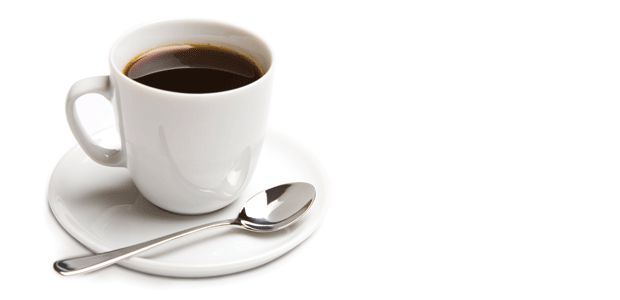Advertisement
A Greener Shade of Coffee
Eco-labels & what they mean

Coffee is popular in Canada: over 60 percent of adults consume the black gold daily. But on a bitter note, much of today’s coffee is produced using unsustainable social and environmental methods, from felling huge swaths of rainforest to meagrely compensating farmers who grow the beloved brew.
Thankfully, for those seeking a more responsible cup of joe, several organizations have grabbed the coffee bean by its roots to lead the charge in helping us sip on a feel-good choice. Here’s the FYI on the best certifications around.
Fair Trade
Translation
A Fair Trade designation goes a long way toward ensuring that coffee farmers are fairly compensated financially for their back-breaking work.
Why care?
Because of a lack of bargaining power and knowledge of world markets, poor farmers in the tropical regions where coffee grows often receive little compensation for their beans. Fair Trade certification allows these vulnerable farmers to obtain a more secure income that can be better used to provide for their families and to invest in sustainable coffee-growing practices.
The Fair Trade Certified label is a third-party certification administered in Canada by TransFair Canada (transfair.ca). It guarantees that your coffee beans were purchased directly from growers or their cooperatives, bypassing middlemen and paying a market-appropriate, fair dollar value.
As a boon to Mother Nature, more than half of Canada’s fair-trade coffee supply is also certified organic.
Bird Friendly
Translation
Coffee stamped with the Bird Friendly seal is certified by the Smithsonian Migratory Bird Center (SMBC) of the US National Zoo to have been grown under the existing canopy of bird-affable trees, preventing habitat destruction.
Why care?
The most flavourful coffee is traditionally produced under the protective shelter of native trees where it obtains the correct amount of humidity, precipitation, shade, wind, and nutrients. However, in the name of increased yields and profits, much of today’s morning jolt is gleaned from full-sun plantations.
According to the SMBC, over the past three decades more than half of the shade-grown coffee farms in Latin America have been converted to sun-grown coffee farms to increase production. Sadly, as the rainforest goes the way of the dodo, so does the kaleidoscope of indigenous birds and mammals that once occupied the forests that stood where these plantations now grow.
The Bird Friendly seal is a step forward in ensuring that the world’s lungs stay vertical, monocultured (one-crop) sun-plantation soil erosion is averted, and fewer chemical inputs are employed. All farms are subject to an independent, third-party inspection to determine whether they meet the SMBC’s strict shade-growing criteria. Farms must also meet organic certification standards to be eligible for this prestigious label.
Companies that sell coffee with the Bird Friendly seal contribute about 50 cents per kilogram of sales to support the SMBC’s conservation programs which include educating coffee farmers on planet-friendly agriculture.
Rainforest Alliance
Translation
Sustainable farm management is encouraged, including increased social, labour, and environmental responsibility.
Why care?
To reduce the environmental footprint of coffee, the Rainforest Alliance works with the support of the Sustainable Agriculture Network, a group of international conservation groups, to ensure farmers go about their business in ways that protect the land and the rights of workers.
In order to qualify for Rainforest Alliance certification, coffee farms must exercise soil, ecosystem, and water conservation; wildlife protection; fair compensation; and good, safe working conditions for workers (child labour is forbidden).
As well, waste management, such as fertilizing the soil with coffee pulp, and developing strategies that promote community development are encouraged. This means that most of the coffee with this label is grown without synthetic chemicals and under shade-providing, monkey-inhabited trees.
What about organic?
Coffee crops grown without herbicides, pesticides, and synthetic fertilizers are an important alternative to those grown on plantations that are laced with chemicals. While chemicals can offer faster, bigger yields and easier farming, they can also harm wildlife, waterways, and eventually deplete the soil of life.
Handing over a bit of extra pocket change for certified organic coffee not only benefits biodiversity, but it also protects the health of farm workers and their families by reducing their exposure to harmful carcinogens.
On the downside, some cash-strapped farmers indeed grow their coffee organically because they simply can’t afford chemicals. As well they often can’t afford the costs associated with organic certification. As a result they do not receive an organic pricing premium.
Since organic certification alone does not inherently address economic inequality or poor labour procedures, fair trade coffee with organic certification is the very best bet for that daily dose of black gold.





